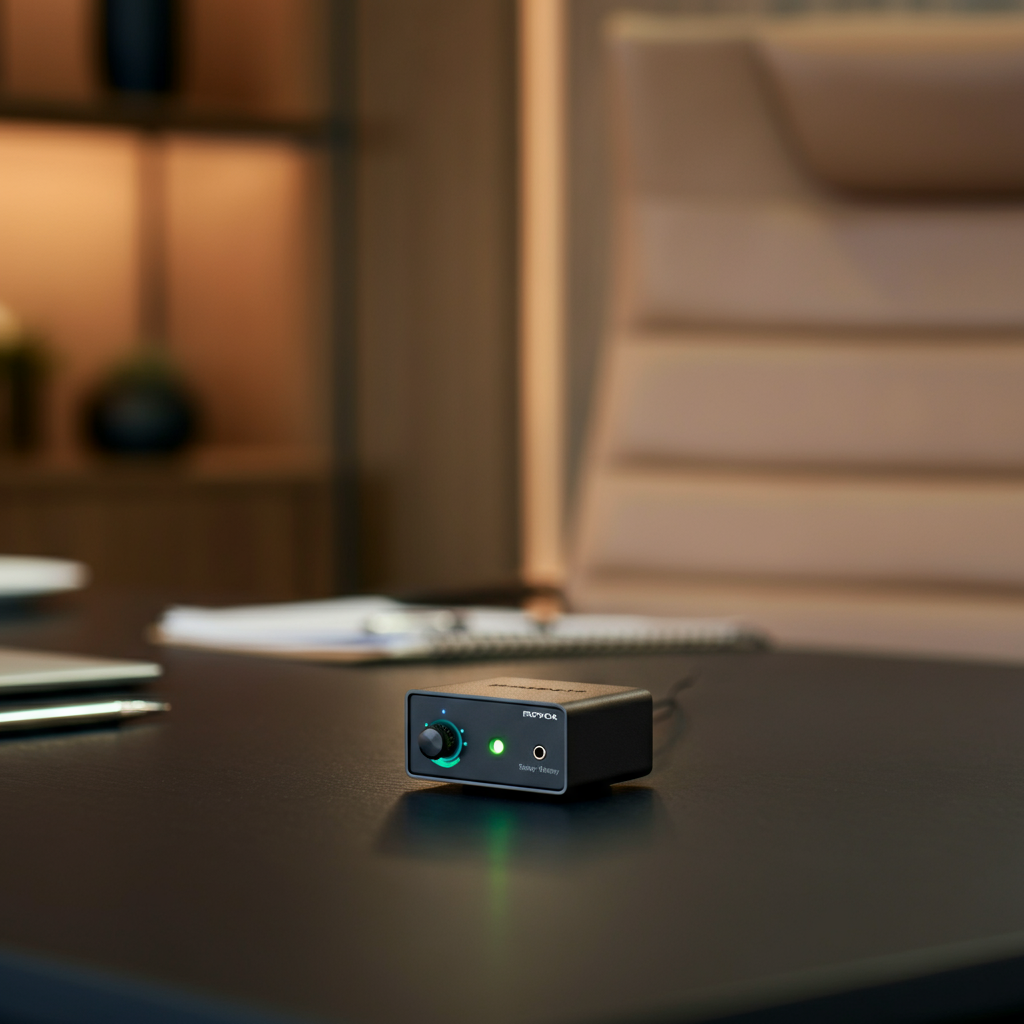Technology
|
7 July 2025
Can My Employer Record Audio Without My Knowledge? Know Your Rights
Written by Faizan
Full Stack Developer
Wondering if your employer can legally record audio without your consent? Learn about workplace privacy laws, your rights, and how to protect yourself.

Table of Contents
In the modern workplace, privacy concerns are at an all-time high. With advancements in technology, employers now have the ability to monitor employees in ways that were unimaginable a few decades ago. One of the most pressing questions employees ask is: Can my employer record audio without my knowledge?
This blog will provide a detailed analysis of the legal, ethical, and practical aspects of audio recording in the workplace. We’ll also cover related laws, employee rights, and actionable steps you can take to protect your privacy.
1. The Legal Framework: What Does the Law Say?
The legality of audio recording in the workplace depends on state laws and the context of the recording. In the United States, states are divided into two categories:
One-Party Consent States
In these states, only one party involved in the conversation needs to consent to the recording. This means that if your employer is part of the conversation, they can legally record it without informing you. Examples of one-party consent states include Texas, New York, and Georgia.
Two-Party (or All-Party) Consent States
In these states, all parties involved in the conversation must give their consent for the recording to be legal. States like California, Florida, and Massachusetts fall into this category.
For instance, in California, your employer cannot legally record a conversation without your explicit consent.
Federal Guidelines
The Electronic Communications Privacy Act (ECPA) provides federal guidelines on workplace monitoring. While it prohibits employers from recording personal calls without consent, it allows them to monitor business-related communications, provided employees are informed.
2. Where Can Employers Legally Record?
Employers generally have the right to record in common workspaces but must avoid areas where employees have a "reasonable expectation of privacy." Here’s a breakdown:
Permissible Areas for Recording
- Open office spaces
- Meeting rooms
- Customer service areas (for quality assurance)
Prohibited Areas for Recording
- Restrooms
- Locker rooms
- Break rooms (in some cases)
- Any area where employees change clothes or expect privacy
Gray Areas
If an employer records audio in areas like cafeterias or hallways, it may be legal but could still raise ethical concerns.
3. Why Do Employers Record Audio?
Employers may have legitimate reasons for recording audio in the workplace. Some of these include:
- Preventing Theft or Fraud: Audio recordings can help identify dishonest activities.
- Ensuring Workplace Safety: Recordings can capture incidents of harassment or violence.
- Improving Customer Service: Many companies record customer service calls for training purposes.
- Monitoring Productivity: Employers may use recordings to assess employee performance.
While these reasons may seem valid, they must be balanced against employee privacy rights.
4. Ethical Implications of Audio Recording
Even if legal, audio recording can have significant ethical implications. Employees may feel a lack of trust and increased stress, which can harm workplace morale. Here are some key ethical concerns:
- Erosion of Trust: Employees may feel that their employer doesn’t trust them.
- Increased Stress: Knowing they’re being recorded can make employees feel constantly monitored.
- Potential for Misuse: Recordings could be used unfairly in disputes or disciplinary actions.
Employers should weigh the benefits of recording against these potential downsides.
5. What Are Your Rights as an Employee?

If you’re concerned about being recorded without your knowledge, here are some steps you can take:
a. Review Your Employee Handbook
Most companies outline their recording policies in the employee handbook. Look for sections on workplace monitoring or privacy.
b. Look for Notices
Employers are often required to post signs if audio recording is taking place. If you don’t see any notices, ask your HR department for clarification.
c. Understand State Laws
Familiarize yourself with your state’s consent laws. For example, if you’re in a two-party consent state, your employer must inform you before recording.
d. Seek Legal Advice
If you believe your rights are being violated, consult an employment attorney. They can help you understand your options and take appropriate action.
6. How Employers Can Stay Compliant
Employers can avoid legal and ethical pitfalls by following these best practices:
- Provide Clear Notices: Inform employees about any audio recording policies.
- Obtain Consent: In two-party consent states, ensure all parties agree to the recording.
- Limit Recording Areas: Avoid recording in private areas like restrooms or locker rooms.
- Use Recordings Responsibly: Only use recordings for legitimate business purposes, such as training or resolving disputes.
7. Real-Life Examples of Workplace Recording

Case Study 1: Customer Service Call Monitoring
A company in Texas (a one-party consent state) records all customer service calls for quality assurance. Employees are informed during onboarding, and customers hear a recorded message stating, “This call may be recorded.”
Case Study 2: Hidden Recording in California
An employer in California secretly recorded conversations in the break room. Employees filed a lawsuit, citing the state’s two-party consent law. The court ruled in favor of the employees, and the company faced significant penalties.
8. Additional Related Resources
For more information on Audio record knowledge, check out these resources:
9. Conclusion
The question, "Can my employer record audio without my knowledge?" doesn’t have a one-size-fits-all answer. It depends on your location, the nature of the recording, and your employer’s policies. By staying informed and proactive, you can navigate this complex issue with confidence.
For transcription services that prioritize privacy and compliance, visit Transcripter.co. We’re here to help you with all your transcription needs while keeping your data secure.
Frequently Asked Questions (FAQ)
1. Can my employer record audio without telling me?
It depends on the state you’re in. In one-party consent states, your employer can record audio as long as they are part of the conversation. In two-party (or all-party) consent states, all parties involved must be informed and give their consent.
2. What is the difference between one-party and two-party consent states?
- One-Party Consent States: Only one person involved in the conversation needs to consent to the recording. This could be the person doing the recording.
- Two-Party (All-Party) Consent States: Everyone involved in the conversation must give their consent for the recording to be legal.
3. Can my employer record audio in private areas like restrooms or locker rooms?
No. Employers are prohibited from recording in areas where employees have a reasonable expectation of privacy, such as restrooms, locker rooms, or changing areas. Recording in these areas is almost universally illegal.
4. Do employers have to notify employees about audio recording?
In most cases, yes. Employers are often required to notify employees if audio recording is taking place, especially in two-party consent states. Notices may be included in employee handbooks or posted in the workplace.
5. Can my employer record my personal phone calls?
Under the Electronic Communications Privacy Act (ECPA), employers cannot legally record personal phone calls without your consent. However, they can monitor business-related calls, provided you’ve been informed.
6. What should I do if I suspect my employer is recording audio without my knowledge?
- Check Your Employee Handbook: Look for policies on workplace monitoring.
- Look for Notices: Employers are often required to post signs if recording is taking place.
- Consult State Laws: Familiarize yourself with your state’s consent laws.
- Seek Legal Advice: If you believe your rights are being violated, consult an employment attorney.
7. Can I record my employer without their knowledge?
This depends on your state’s consent laws:
- In one-party consent states, you can record as long as you are part of the conversation.
- In two-party consent states, you must inform and get consent from all parties involved.
8. Can audio recordings be used as evidence in court?
Yes, but only if the recording was made legally. For example, in a two-party consent state, a recording made without the other party’s consent would likely be inadmissible in court.
9. Are there federal laws that regulate workplace audio recording?
Yes. The Electronic Communications Privacy Act (ECPA) provides federal guidelines. It prohibits employers from recording personal calls but allows monitoring of business-related communications with proper notice.
10. How can I protect my privacy at work?
- Avoid personal conversations in areas where recording might occur.
- Use personal devices for private communications.
- Familiarize yourself with your employer’s policies and state laws.
- If you’re concerned, consult an attorney for advice.
Revolutionize Your Workflow with Transcripter
Ready to streamline your content creation?
